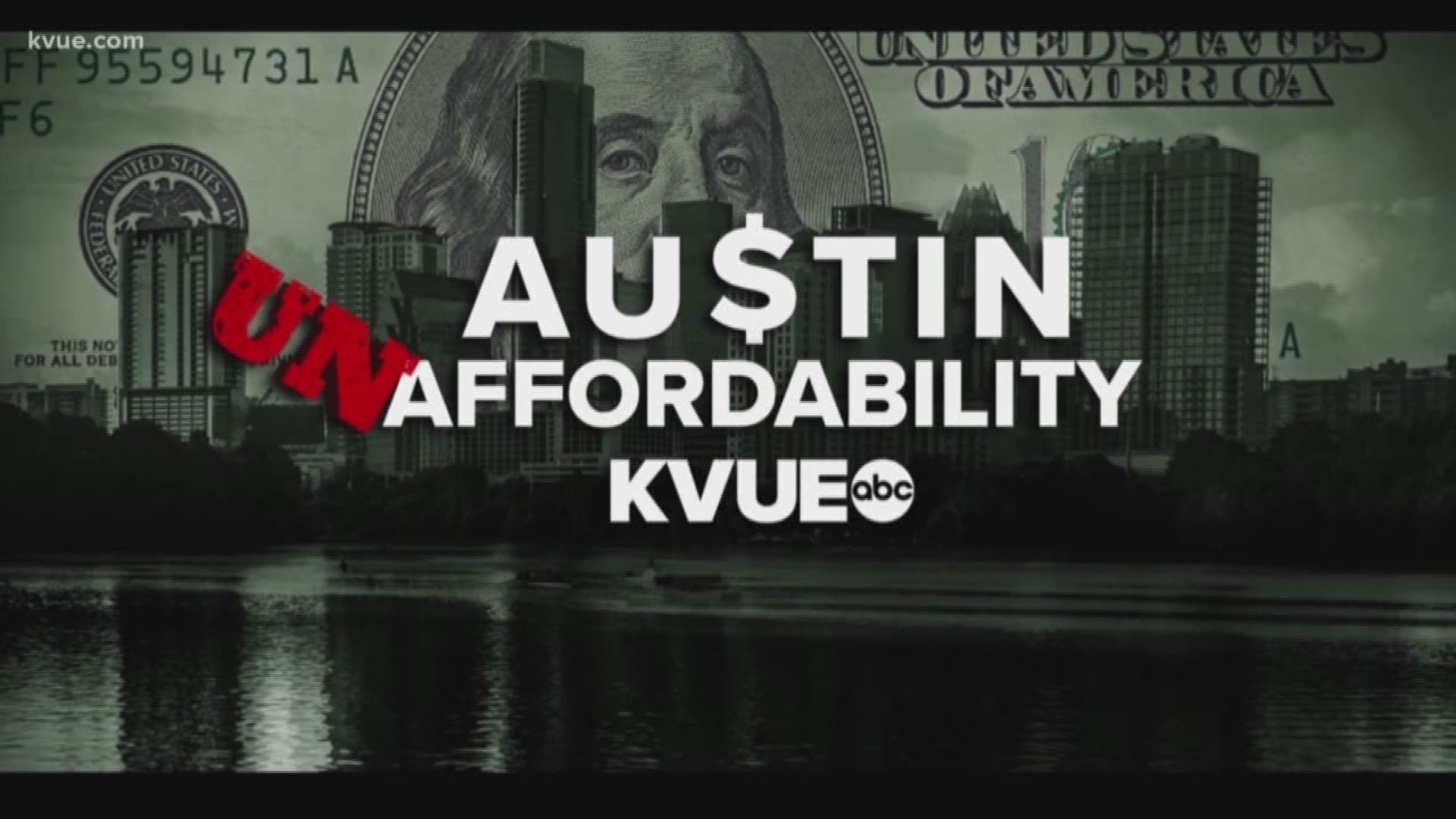Austin unaffordability: The good, the bad and the ugly for homeowners
For all the good that comes with Austin's growth, there is an equal amount of worry. Demand makes property values rise, which is good for your investment, but it also makes property taxes go up and up.
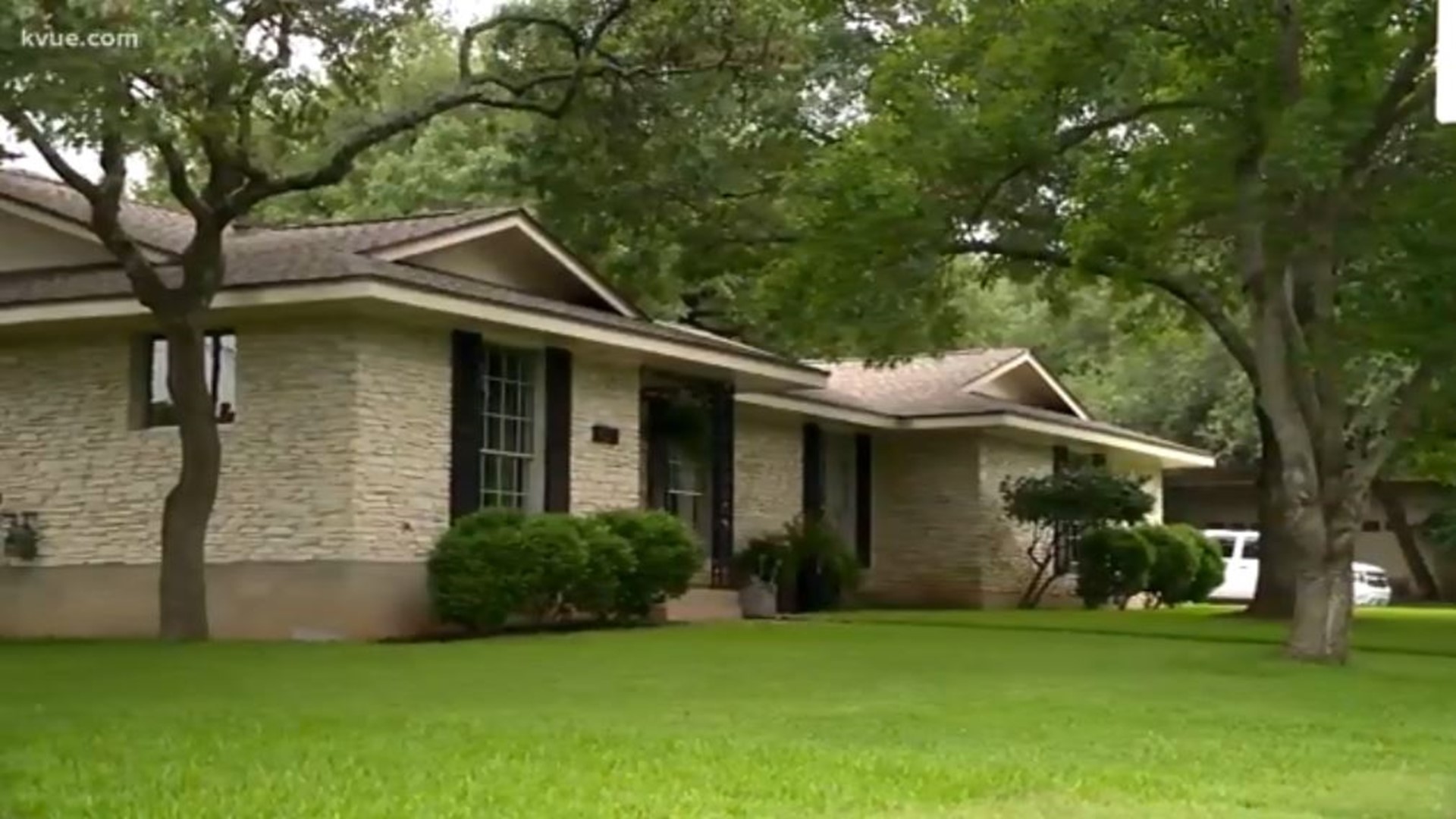
AUSTIN -- The average Austin homeowner will pay $517 more than they did last year for the same home, and that has a lot of people who bought modest homes wondering if they'll be able to afford to stay in them.
People like Austin musician Dale Watson.
His music helped put Austin on the map, so this may be the last thing you expect a man who’s made a name for himself in the Live Music Capitol of the World to say.
“I'm actually building a studio in Memphis,” he said.
Watson is worried about rising property taxes in Austin.
“You want a house, you want to be able to live here in the city and they keep raising it so much you can't afford it,” he said.
His East Austin home is a modest 1,400 square feet. He was able to build a studio on his less than one acre, but his property taxes have nearly doubled in five years.

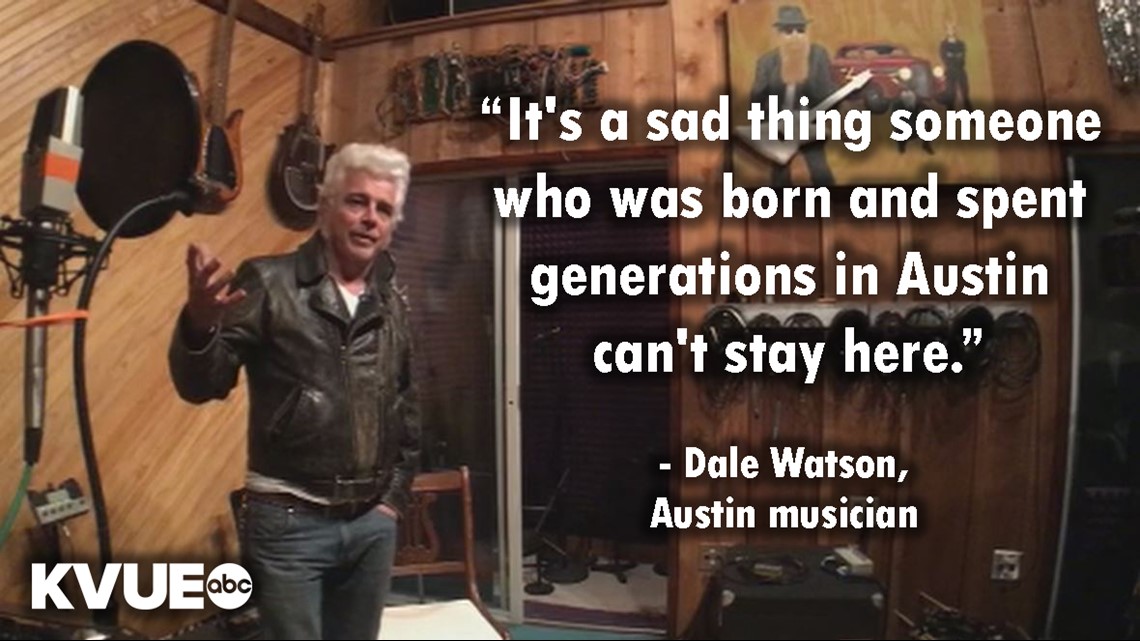
It's a sad thing someone who was born and spent generations in Austin can't stay here,” said Watson.
Watson hears from music lovers that are being forced to move out.
He said one girl in her 20s told him that it “broke her heart that she can’t get a house in Austin because it’s too far out of her price range. Her parents had to move to San Marcos. They’re 70 and love Austin.”
Property Values and Taxes Soar
Every day, average homeowners are struggling.
“We bought the house in 1977 for $44,000 and now it's worth over half a million,” said Bryan Fugate of his Central Austin home.
His granddaughter, who has lived with him and his wife since she was two, was recently diagnosed with Muscular Dystrophy -- a progressive disease that has already confined her to a wheelchair.
“That's why we want her here, so we can take care of her,” said Fugate.

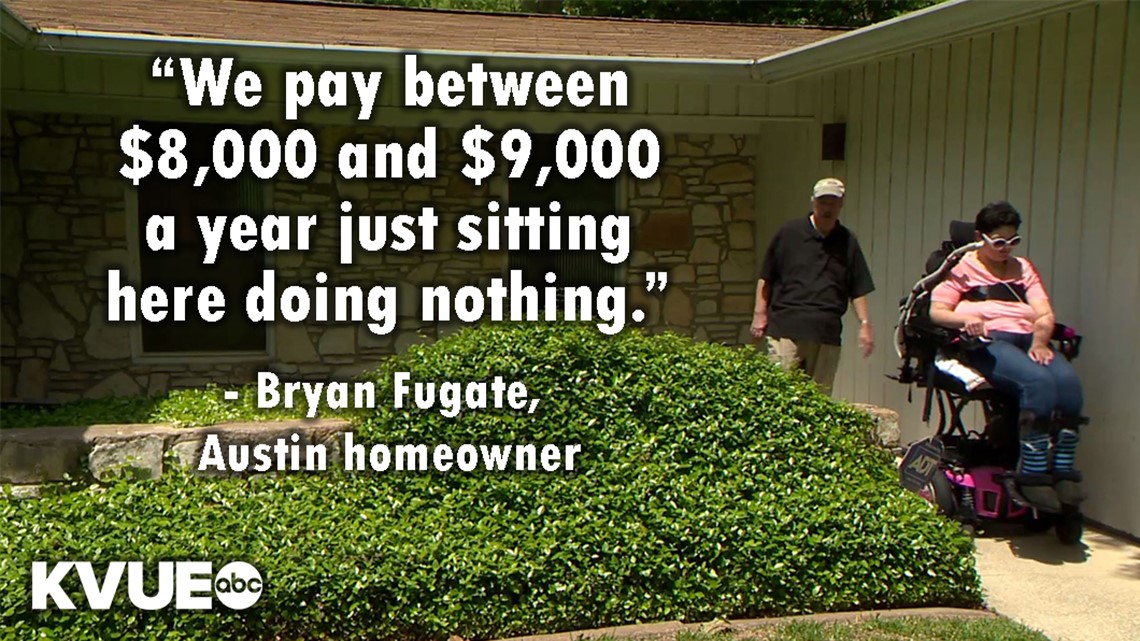
Granddaughter Alex Acosta said, “I want to stay at my home.”
Working even into his retirement, Fugate worries he won't be able to make that happen.
“We pay between $8,000 and $9,000 a year just sitting here doing nothing,” he said.
The Good and the Bad
It is the good mixed with the bad. You want your investment to increase in value, but since there is no state income tax in Texas, state and local taxing entities rely heavily on the revenue generated by property taxes to pay for schools and local services. So even when they lower the tax rate, the property values leave homeowners paying more.
“We understand that the affordability issue is pretty acute in Austin and we want to do everything we can to help people stay in their homes,” said Bruce Elfant, the Travis County tax assessor.
Click here for a report on the housing activity in your area from the Texas A&M Real Estate Center.
Click here for the Austin Board of REALTORS Central Texas Housing Market Report.
Click here to view the Texas Franchise Tax Forms from the Texas comptroller.
Ways to Save
But salaries are not rising that quickly.
“No they are not, and we see that all over town where people of modest means buy modest properties and their salaries are still modest, but the dirt is worth half a million dollars," he said. "It's the way our property tax system works unfortunately.”
Once you're 65, you also qualify to freeze the amount you pay in school taxes, which make up more than half of most people’s property tax bill.
“You need to buy a home you can afford and you need to think of the future about what you might be able to afford (property tax wise). We want to make sure people are taking advantage of all the exemptions," said Elfant. "If you’re living in your home and you don’t have a homestead exemption, that is something that can help. If you turn 65, you qualified for the tax break from the school system and it’s 54 percent of our taxes, so that matters. If you have a disability or military exemption, you want to make sure you’re taking advantage of those.”
Travis County has some of the biggest collections for property taxes in the state, collecting 99 percent of what is owed.
However, Elfant said, “If you get into some financial difficulties, we encourage you to talk to us. Call us and we will work out some kind of payment plan.”
There is also a deferral program for people 65 and older.
This allows homeowners to stop paying property taxes, however the tax bill doesn't go away. Instead, it collects five percent interest every year. And once you die or sell your home, that tax bill must be paid in full within six months or the county takes over.
“If you don't have kids and you don't care what happens to your house, it might be a good thing," said Elfant. "You just need to check with your mortgage company, because a lot of mortgage companies, if you still have a mortgage, will not approve a deferral.”
Right now, only about 3,000 people in Travis County take advantage of this. Elfant believes thousands more could.
For people like Watson, that's not an option.
“I have two daughters. I want this to be their house in Austin,” he said.
So he, like many Austin homeowners, works harder to hang onto his little part of the city he wants to continue to call home.
“It should be looked at that you're driving out residents who have been here in Austin,” he said.
Looking to the Future
In many ways, this is a simple supply-and-demand issue.
A recent report from the Austin Board of REALTORS found that if Austin's housing drought continues, property taxes are set to increase by 50 percent or more over the next five years.

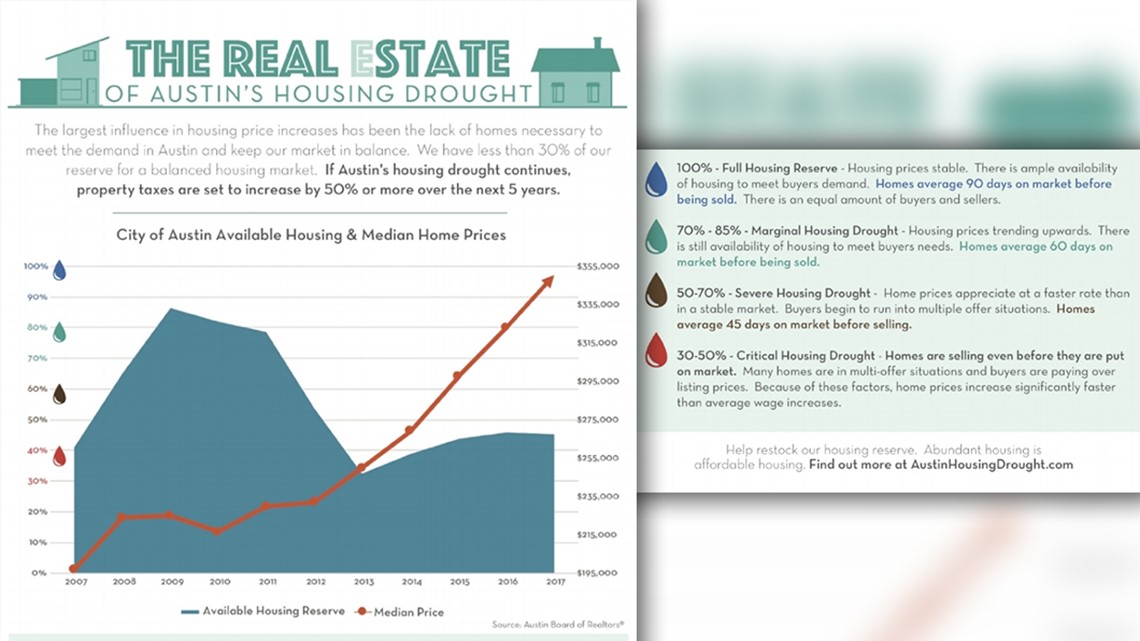
Not if the legislature has anything to say about it. Governor Greg Abbott unveiled a plan in January that would limit local property tax revenue growth to 2.5 percent annually.
RELATED:


